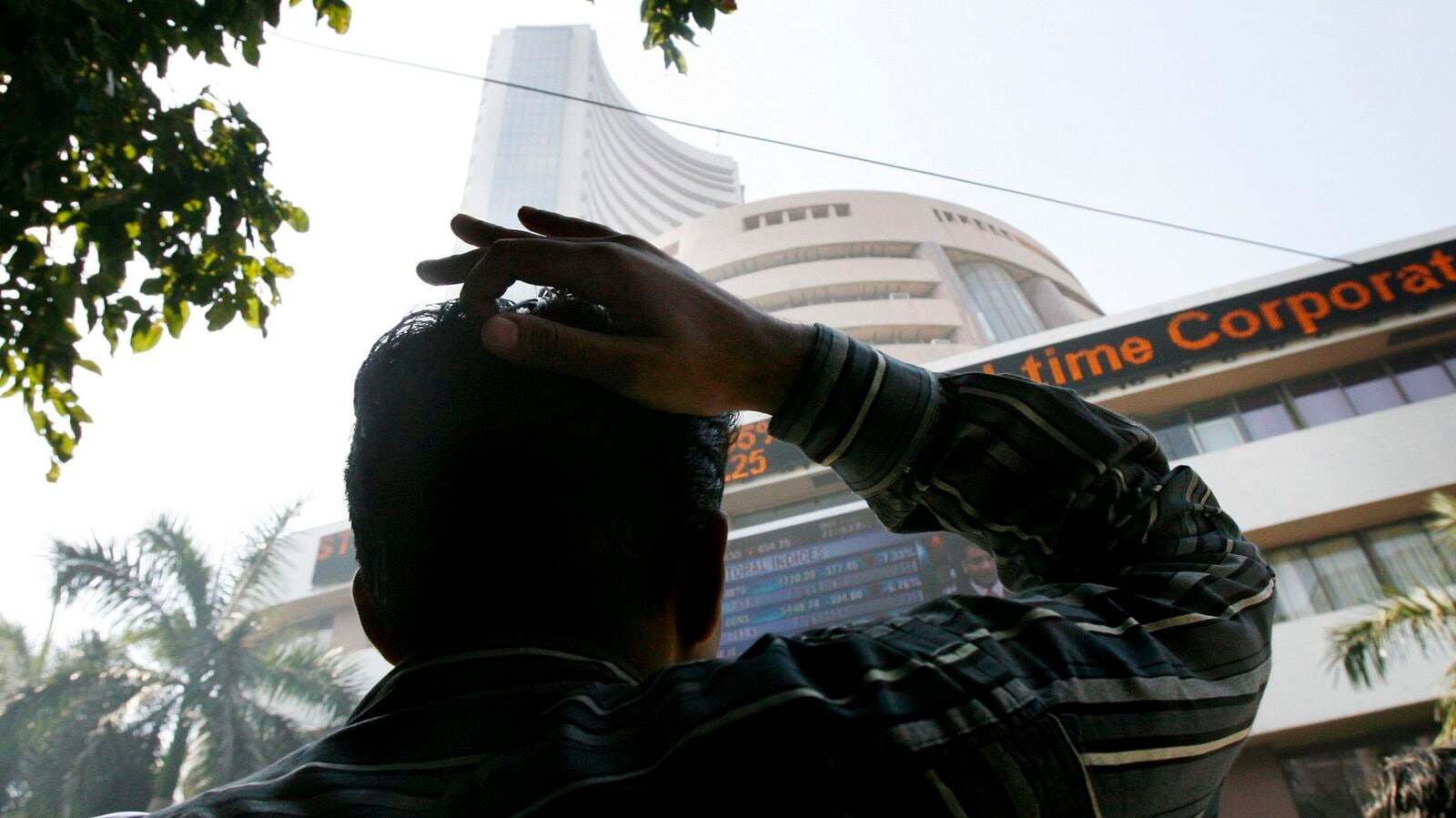The Indian stock market experienced its worst intra-day decline in two months on Thursday, October 3, 2023, delivering a significant blow to investors’ wealth. By the end of the trading day, the overall market capitalization for all companies listed on the BSE had plummeted to ₹4,65.07 lakh crore, down from ₹4,74.86 lakh crore on Tuesday, resulting in a staggering loss of nearly 9.78 lakh crore.
During the trading session, the market cap experienced a sharp decline of approximately ₹10.5 lakh crore, coinciding with more than a 2% drop in the Indian benchmark indices.
What Sparked the Sensex Crash?
The Sensex and the Nifty faced a drastic drop due to escalating geopolitical tensions in the Middle East, especially concerning the conflict between Iran and Israel. The Sensex closed at 82,497, down 1,769 points or 2.10%, while the Nifty 50 ended at 25,250, down 547 points or 2.12%. This marked the fourth consecutive day of decline for both indices, with cumulative losses exceeding 3.5% each during this timeframe.
In addition to geopolitical concerns, several other factors contributed to today’s stock market crash. These included a sharp rise in crude oil prices, regulatory changes in the futures and options (F&O) segment implemented by the market regulator SEBI, and persistent outflows from foreign institutional investors (FIIs).
The conflict escalated when Iran reportedly launched around 180 ballistic missiles at Israel, leading to a surge in crude oil prices. Brent crude oil prices soared from $71 per barrel on Monday to $75 per barrel, with speculation rising that Israel might retaliate by targeting major oil fields in Iran. This situation poses a significant risk for India, which relies on imports for 80% of its oil needs. An increase in oil prices could dramatically inflate India’s import bill, exacerbating inflationary pressures.
Moreover, recent regulatory changes introduced by SEBI in the F&O sector are expected to impact trading volumes significantly. Retail participation could diminish as the contract sizes have increased and the limits on weekly expiries have been implemented, potentially discouraging smaller investors.
Adding to the downward pressure, foreign portfolio investors sold equities worth ₹5,579.35 crore on October 1, marking the third consecutive day of net selling. This trend of outflows from FPIs has raised concerns about sustained investment in the Indian markets, further contributing to the market’s volatility.
Siddhartha Khemka, Head of Research at Wealth Management, commented that the market may continue to experience volatility in the near term. He anticipates stock-specific actions as companies prepare to release their pre-quarterly updates, which could create further fluctuations within the market.
Market Overview
| Index | Closing Value | Points Lost | Percentage Change |
|---|---|---|---|
| Sensex | 82,497 | -1,769 | -2.10% |
| Nifty 50 | 25,250 | -547 | -2.12% |
On the BSE, a notable trend emerged where 2,881 stocks closed with losses while only 1,107 stocks managed to gain, indicating a prevailing bearish sentiment in the market.
Disclaimer: The views and recommendations expressed above are those of individual analysts or brokerage firms and do not reflect the opinions of Mint. Investors should consult with certified experts prior to making any investment decisions.









